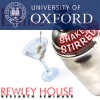Department for Continuing Education

Oxford was one of the pioneers of the University Extension movement in the United Kingdom, and we still retain our original mission of making the scholarship of the University accessible to wider audiences.
In recent years the Department has grown very considerably, and now every year more than 15,000 people join one or more of our courses. Our students may be members of the public who wish to study a subject out of general interest or for personal satisfaction, members of professional groups or business organisations who wish to update their professional knowledge and skills, or participants in our increasingly large number of courses for international groups.
Most of our longer courses now lead to a University award or other forms of credit but the large number of short courses on offer may be taken by those who are less interested in obtaining further qualifications. Courses last from one day to several weeks; the residential courses are held in Oxford but other part-time courses are also held in a large number of other centres.
Series associated with Department for Continuing Education
| # | Episode Title | Description | People | Date | |
|---|---|---|---|---|---|
| 49 | Talking to Camera | A new one-day course at the Department for Continuing Education taught by Paul Heiney, writer and broadcaster, this course is intended to help people face a video camera with confidence, and communicate through the fast-growing video media. | Paul Heiney | 04 May 2011 | |
| 48 | Mathematics in the real world | Inspired by Évariste Galois's attempts to express symmetry using mathematical equations, Professor Marcus du Sautoy explores the inextricable link between the physical world and mathematics. | Marcus du Sautoy | 25 Nov 2010 | |
| 47 | Creative Commons | The God Delusion: Questions and Answers | Stephen Law and Marianne Talbot take part in a panel discussion with Tom Fisher, chairman of the Oxford Philosophical Society, chairing. They answer questions form the audience about The God Delusion and discuss the philosophical issues surrounding it. | Marianne Talbot, Stephen Law, Tom Fisher | 20 May 2010 |
| 46 | Creative Commons | Attacking the God hypothesis in other ways | Stephen Law gives the fourth talk on Richard Dawkins' The God Delsuon as part of The God Delusion Weekend. | Stephen Law | 20 May 2010 |
| 45 | Creative Commons | Has Dawkins shown that God is Redundant? | Marianne Talbot presents the third talk on Richard Dawkins' The God Delusion as part of The God Delusion Weekend. | Marianne Talbot | 20 May 2010 |
| 44 | Creative Commons | The Strengths and Weaknesses of The God Delusion | Stephen Law givs the second talk on Richard Dawkins' The God Delusion as part of The God Delusion Weekend. | Stephen Law | 20 May 2010 |
| 43 | Creative Commons | A Scientific Hypothesis? | Marianne Talbot gives the first talk on Richard Dawkins' The God Delusion as part of The God Delusion Weekend. | Marianne Talbot | 20 May 2010 |
| 42 | Creative Commons | Evaluating Arguments Part Two | Part six of a six-part series on critical reasoning. In this final lecture we will look at fallacies. These are bad arguments that can easily be mistaken for good arguments. | Marianne Talbot | 18 Mar 2010 |
| 41 | Creative Commons | Evaluating Arguments Part One | Part five of a six-part series on critical reasoning. In this lecture we will continue with the evaluation of arguments - this time deductive arguments - focusing in particular on the notion of validity. | Marianne Talbot | 15 Mar 2010 |
| 40 | Creative Commons | Taming the Casino Banks | In this podcast the experts discuss whether the 'casino' banks that are considered too big to fail are simply too big, and explain the arguments for and against splitting them up. | Jonathan Michie, Martin Slater, Linda Yueh | 15 Mar 2010 |
| 39 | Creative Commons | What is a Good Argument? Validity and Truth | Part four of a six-part series on critical reasoning. In this lecture we will learn how to evaluate arguments and how to tell whether an argument is good or bad, focusing specifically on inductive arguments. | Marianne Talbot | 11 Mar 2010 |
| 38 | Creative Commons | Setting out Arguments Logic Book Style | Part three of a six-part series on critical reasoning. In this lecture we will focus on how to identify and analyse arguments, and how to set arguments out logic book-style to make them easier to evaluate. | Marianne Talbot | 10 Mar 2010 |
| 37 | Creative Commons | Different Types of Arguments | The second of six lectures dealing with critical reasoning. In this lecture you will learn about the different types of arguments, in particular deductive and inductive arguments. | Marianne Talbot | 29 Jan 2010 |
| 36 | Creative Commons | The Nature of Arguments | The first of six lectures dealing with critical reasoning. In this lecture you will learn how to recognise arguments and what the nature of an argument is. | Marianne Talbot | 29 Jan 2010 |
| 35 | Creative Commons | Bank bonuses, breakups and regulation | In the first podcast of 2010, the experts discuss bank bonuses, proposed break-ups and tighter regulation of the banking and financial sectors. | Linda Yueh, Jonathan Michie, Martin Slater | 28 Jan 2010 |
| 34 | Mathematics: Navigating Nature's Dark Labyrinth | "Mathematics: Navigating Nature's Dark Labyrinth" - the Inaugural Lecture of the Simonyi Professor for the Public Understanding of Science, 2009. | Marcus du Sautoy | 30 Nov 2009 | |
| 33 | The Visitors and Residents Principle: A guide to assessing motivations towards the web | An update to Prensky's 'Digital Natives' idea, taking the stand-point that individuals attitudes to the web are not primarily governed by age or technical skill. | David White | 25 Nov 2009 | |
| 32 | Occupational Health and Safety in a Research Setting | Dr Simon Ndirangu, Bioanalytical Laboratory at the Kenya Medical Research Institute (KEMRI)/Wellcome Trust Research Programme in Kilifi, Kenya discusses the importance of implementing occupational health and safety standards in research settings. | Simon Ndirangu Muchohi | 29 Oct 2009 | |
| 31 | Measurement of Drug Levels in Clinical Trials | Dr Simon Ndirangu, Bioanalytical Laboratory at the Kenya Medical Research Institute (KEMRI)/Wellcome Trust Research Programme in Kilifi, Kenya describes the basic concepts of pharmacological clinical trials, pharmacokinetics and pharmacodynamics. | Simon Ndirangu Muchohi | 29 Oct 2009 | |
| 30 | Setting Up a Laboratory for Clinical Trials in Resource-Poor Settings | Ken Awuondo, Clinical Trials Laboratory Manager for the Kenya Medical Research Institute (KEMRI)/Wellcome Trust Research Programme in Kilifi, Kenya gives an overview of the requirements for setting up a laboratory in resource-poor settings. | Ken Awuondo | 29 Oct 2009 | |
| 29 | The Role of Laboratory in Clinical Trials | Ken Awuondo, Clinical Trials Laboratory Manager for the Kenya Medical Research Institute (KEMRI)/Wellcome Trust Research Programme in Kilifi, Kenya gives an overview of the role of the laboratory in clinical trials. | Ken Awuondo | 29 Oct 2009 | |
| 28 | Data Safety Monitoring Boards: Their Place and Role in Trials | Dr Roma Chilengi, Head of Clinical Trials at the Kenya Medical Research Institute (KEMRI)/Wellcome Trust Research Programme in Kilifi, Kenya discusses clinical trial data safety monitoring boards (DSMBs). | Roma Chilengi | 29 Oct 2009 | |
| 27 | Clinical Trial Protocol Development | Dr Phaik Yeong Cheah, Head of Clinical Trials at the Mahidol-Oxford Research Unit in Bangkok, Thailand discusses clinical trial protocol development. | Phaik Yeong Cheah | 29 Oct 2009 | |
| 26 | Introduction to Research Ethics | Dr Roma Chilengi, Head of Clinical Trials at the Kenya Medical Research Institute (KEMRI)/Wellcome Trust Research Programme in Kilifi, Kenya gives an introduction to research ethics. | Roma Chilengi | 29 Oct 2009 | |
| 25 | The Story of ICH-GCP: An introduction for investigators and site staff | Dr Roma Chilengi, Head of Clinical Trials at the Kenya Medical Research Institute (KEMRI)/Wellcome Trust Research Programme in Kilifi, Kenya gives an introduction to ICH-GCP. | Roma Chilengi | 29 Oct 2009 | |
| 24 | An Introduction to Clinical Trials | George Warimwe from the Kenya Medical Research Institute (KEMRI)/Wellcome Trust Research Programme in Kilifi, Kenya presents an introduction to clinical trials aimed at trial site staff and anyone new to the field. | George Warimwe | 29 Oct 2009 | |
| 23 | Creative Commons | Challenging Macroeconomics | In part 6, our experts examine new models for monetary and fiscal policy, global financial markets and a world economy characterised by global imbalances. | Linda Yueh, Jonathan Michie, Martin Slater | 11 Aug 2009 |
| 22 | Creative Commons | UK Budget and Global Recovery Plans | In Part 5, our experts examine the British economy in light of the recent Budget, and assess whether a global recovery may be on the horizon. | Linda Yueh, Jonathan Michie, Martin Slater | 04 Jun 2009 |
| 21 | The world's first tracheal transplant | A lecture "The world's first tracheal transplant" given by Prof Martin Birchall, University of Bristol, at the 10th OIBC Spring Symposium, held jointly with the Department for Continuing Education, at St Edward's School, Oxford, on 4 March 2009. | Martin Birchall | 05 May 2009 | |
| 20 | Tissue engineering and stem cell technology | A lecture, "Tissue engineering and stem cell technology" given by Prof ZhanFeng Cui, University of Oxford, at the 10th OIBC Spring Symposium, held jointly with the Department for Continuing Education, at St Edward's School, Oxford, on 4 March 2009. | ZhanFeng Cui | 05 May 2009 | |
| 19 | Stem cells: what are they and why are they important | A lecture "Stem cells: what are they and why are they important" given by Professor Sir Richard Gardner at the 10th OIBC Spring Symposium, held jointly with the Department for Continuing Education, at St Edward's School, Oxford, on 4 March 2009. | Richard Gardner | 05 May 2009 | |
| 18 | The reversal of cell differentiation and prospects for cell replacement therapy | The inaugural Anne McLaren Memorial Lecture, "The reversal of cell differentiation and prospects for cell replacement therapy", given by Prof Sir John Gurdon FRS, University of Cambridge, at Lady Margaret Hall, Oxford, on 7 November 2008. | John Gurdon | 05 May 2009 | |
| 17 | Creative Commons | G20: Solutions to Global Depression? | In this fourth podcast Linda Yueh and Jonathan Michie discuss the G20 debates over co-ordinated fiscal expansion, global regulation, and the role of the IMF. | Linda Yueh, Jonathan Michie | 31 Mar 2009 |
| 16 | Creative Commons | Credit Crunch Live | Economics students of St Edmund Hall, University of Oxford pose questions to a panel of experts about the credit crunch and global recession. | Linda Yueh, Martin Slater, Outi Aarnio, John Knight | 25 Feb 2009 |
| 15 | Creative Commons | Bank Bail-outs and Obama's Green New Deal | In this second podcast, Linda Yueh and Jonathan Michie discuss President Obama's Green New Deal, banking bail-outs, quantitative easing and whether we can spend our way out of the economic crisis. | Linda Yueh, Jonathan Michie | 28 Jan 2009 |
| 14 | Creative Commons | Philosophy of language and mind | Language and Mind: What is rationality? What is consciousness? How do we manage to express our thoughts and experiences in language? | Marianne Talbot | 09 Jan 2009 |
| 13 | Creative Commons | Metaphysics and Epistemology | Metaphysics and Epistemology: what exists, what is its nature and how can we acquire knowledge of it? | Marianne Talbot | 09 Jan 2009 |
| 12 | Creative Commons | Ethics and politics | Moral and Political Philosophy: how should we live? What constitutes a just state? | Marianne Talbot | 09 Jan 2009 |
| 11 | Creative Commons | The philosophical method - logic and argument | Logic and Argument: the joys of symbolic and philosophical logic. | Marianne Talbot | 09 Jan 2009 |
| 10 | Creative Commons | Global Recession: How Did it Happen? | Linda Yueh talks to Jonathan Michie about the credit crunch and looming global recession, the effect it has had on both banks and businesses, and how a Green New Deal may provide a solution to the crisis. | Linda Yueh, Jonathan Michie | 22 Dec 2008 |
| 9 | Creative Commons | A romp through the history of philosophy from the Pre-Socratics to the present day. | A romp through the history of philosophy from the Pre-Socratics to the present day. | Marianne Talbot | 13 Nov 2008 |
| 8 | John Milton: poet, pamphleteer and patriot | Dr Anna Beer gives an overview of the life and works of the poet John Milton. | Anna Beer | 11 Sep 2008 | |
| 7 | How foreign policy is made | Alan Hunt gives an overview of how foreign policy is made - part of a recent training course for junior diplomats. | Alan Hunt | 11 Sep 2008 | |
| 6 | Introduction to the software life-cycle | Introductory lecture, given by Dr Raymond Flood, for the summer school part of the online diploma in computing. | Raymond Flood | 11 Sep 2008 | |
| 5 | New economic powers: China | Introduction to the BRICs and China's political economy - lecture given by Dr Yueh. | Linda Yueh | 09 Sep 2008 | |
| 4 | If I were you, I wouldn't start from here: understanding Oxford through its past | Local history lecture, by Chris Day, giving an overview of the history of the University of Oxford. | Chris Day | 01 Sep 2008 | |
| 3 | Phoebe: a pedagogic planner | Marion Manton gives an overview of the Phoebe project which aims to guide practitioners working in post-compulsory learning (FE, HE and ACL) in designing effective and pedagogically sound learning activities. | Marion Manton | 01 Sep 2008 | |
| 2 | Using virtual worlds for teaching and learning | David White gives an overview of the Open Habitat project which is investigating using virtual worlds for teaching and learning. | David White | 29 Aug 2008 | |
| 1 | Choices and challenges: lessons learned in the evolution of online learning | Lecture given by Dr DiPaolo May 2006 on the lessons learned in the evolution of online education. | Andy DiPaolo | 15 Aug 2008 |
- ‹ previous
- 3 of 3
































